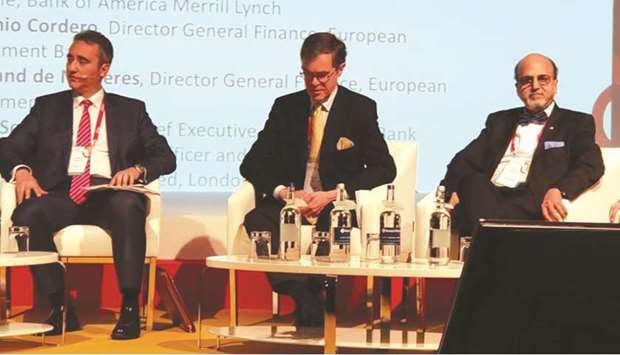At the ‘50th International Capital Market Association Annual General Meeting & Conference’ held recently in Spain, Seetharaman said after 2015 United Nations Climate Change Conference (COP 21), European financial supervisors have been increasingly scrutinising the banking sectors to understand their exposure to climate risks and their preparedness for a transition to a low-carbon energy system.
In the panel discussion ‘Developments in Green, Social, and Sustainable Finance’, Seetharaman said: “Bank of England is engaged in an ongoing examination of both physical effects of climate change and the impact of changes associated with the transition to a lower-carbon economy.
“Central bank governors in Europe are considering increasing regulatory oversight to address climate-related risks to the financial system, including carbon stress tests for banks.”
He said Bank of England would consider carbon stress tests of banks after its review of the sector’s exposure to climate-related risk is competed this year.
“China Banking regulatory commission had developed Green Credit Lines, Bangladesh Bank had brought Green Banking Framework, and Indonesia Financial Services Authority had developed roadmap for sustainable finance.
The Reserve Bank of India guided credit to priority sectors but also relied on industry initiatives for green finance guidelines,” he said.
According to Seetharaman, sustainable finance refers to any form of financial service that integrates environmental and social into the business or investment decisions “for the lasting benefit of both clients and society at large and contribute to green economies.”
He said the 17 sustainable development goals not just cover climate change but extends to areas such as health, education, and infrastructure, among others.
“Institutions should explore the concept of sustainable finance to other sustainable development goals based on their willingness and risk appetite to participate in financing such areas.
Institutions adopt Environmental, Social and Governance (ESG) criteria for sustainable finance, which considers social conscious lending or investments.
“Environmental criteria look at how a company performs as a steward of the natural environment.
Social criteria examine how a company manages relationships with its employees, suppliers, customers, and the communities where it operates. Governance deals with a company’s leadership, audits, internal controls, and shareholder rights,” he said. Seetharaman said Doha Bank advocates and practices green banking, which is one of its core business philosophies that support sustainability into the future. It has tracked the developments pertaining to various Conference of the Parties meetings and is involved with various COP meeting delegations, including COP18 in Doha.
The bank has worked on the ‘ECO-Schools Programme’ with Unesco, which works with educational institutions to build awareness of key environmental issues and create action plans that are school-specific to help mitigate the overall impact on the environment. Doha Bank has also provided facilities for district cooling and for project financing for water projects.
“Doha Bank Group, as part of its corporate social responsibility, demonstrates fair, open, efficient, and consistent business practices to mitigate climate change and promote sustainable development.

